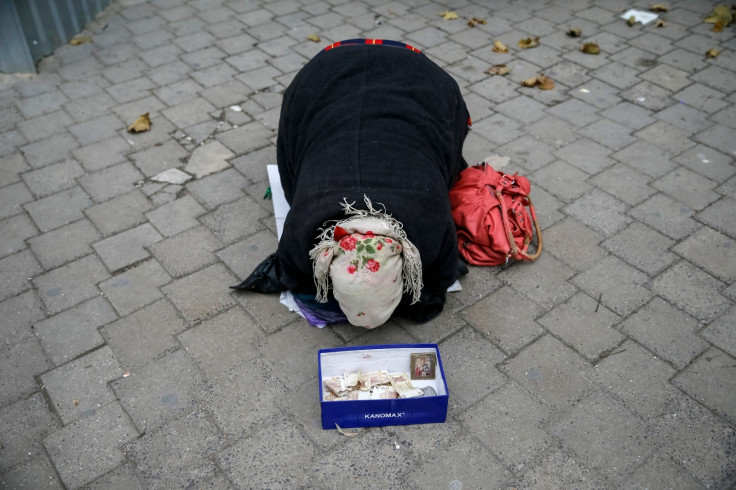Romanian woman deported for begging in Denmark
She was sentenced under a new controversial anti-begging law.

Denmark has deported a Romanian woman for begging on the streets of Copenhagen.
After she was arrested asking passersby for spare change in the Danish capital, the 63-year-old woman was sentenced to 20 days in jail and deportation on Tuesday (1 August).
Prosecutor Marlene Beynon convinced Copenhagen City Court that the woman posed a serious threat to the state, a condition that must be met in order for an EU citizen to be deported.
"Her behaviour is continuous and systematic. It has an adverse effect on all of the passersby who need to respond to her begging," Beynon said according to Danish news agency Ritzau.
She argued that the woman "bothered" members of the public by "attempting to make eye contact".
The woman told the court that she begs in Copenhagen to support her seven children back home in Romania. "I have a lot of kids there. They eat out of the garbage can," she said, according to Danish media.
Her deportation comes with a six-year reentry ban.
The controversial sentence comes after the Danish government introduced anti-begging legislation in June which prohibits people from begging in public places, including at stations and outside supermarkets.
The law has been criticised by homelessness charities that say it turns people living on the streets "into criminals" and "increases criminality instead of reducing it."
Although the law has only just come into effect, it is not the first time someone has been deported from Denmark for begging.
In November, a Danish court sentenced a Slovakian woman to 40 days in prison and ordered that she was deported after she was caught begging on the streets.
"It can seem harsh to deport a person for begging for money, but the fact is that begging is illegal in Denmark," prosecutor Anne Jacobsen said at the time.
Denmark tightened its immigration rules in 2016 after a record 21,316 people requested asylum in the country of 6 million in 2015.
Earlier this year, the government's decision to deport a 70-year-old woman with severe dementia to Afghanistan provoked outrage, with human rights activists warning that she was at risk of "serious harm" and even death if she returned to her war-torn country.
Several Danish politicians say immigration from Muslim-majority countries is threatening their country's culture.
"The immigration we've had, particularly from Muslim countries, has in many ways destroyed our country," Martin Henriksen, a senior member of the Danish People's Party and chairman of the parliamentary committee on Foreigners and Integration, told the New York Times in April.
He said that asylum-seekers were never sent back to their country if they face serious danger there. "We don't return people if we know there's an execution battalion waiting for them at the airport," he said. "Of course we don't."
© Copyright IBTimes 2025. All rights reserved.






















